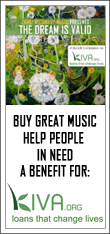Let me take this opportunity to sumorize what I have read in Integral Psychology by Ken Wilber.
Human concoiusness (you reading this right now) starts out undifferentiated from the material world. It then differentiates its bodily self from the material environment and emerges as an instinctive, impulsive self. Here it is still magically involved in the environment, and still struggling for egocentric power over the environment. As the conceptual mind begins to emerge, it differentiates itself from the body, and thus the self adds increasingly mental capicities to its sensory ones, and hence begins to move out of the narcissistic, first-person, safety/security/power orbit and into a more widely intersubjective, communal, and social circle. As rule thinking and the capacity to take the role of others emerge, egocentic gives way to sociocentric, with its initially conformist and conventional roles, mythic-absolutist beliefs, and often authoritarian ways. A further growth of conciousness differentiates the self from its embeddidness in sociocentric and ethnocentric modes, and opens it to formal, universal, worldcentric, postconventional awareness, which is an extraordinary expansion of conciousness into modes that are beginning to become truly global.This postconventional stance is deepened with postformal development, which, most researchers agree, moves through relativistic individualism and pluralism.
If conciousness continues its evolutionary spiral beyond this universal, integral stance, it can move into transpersonal, post-postconventional realms (psychic, subtle, causal, and nondual). A few of the modern Western pioneers stydying these higher realms include Johann Fichte, Friedrich Schelling, Georg Hegal, Arthor Schopenhauer, Henri Bergson, Friedrich Nietzsche, Carl Jung, Martin Heidegger, Karl Jaspers, Edmond Husserl, Gustav Fechner, Henry James, Ralph Waldo Emerson, Rudolf Steiner, Vladimir Solovyov, Josiah Royce, Annie Besant, Frederic Myers, Nikolai Berdyaev, Aldous Huxley, Erich Fromm, Roberto Assagioli, James Mark Baldwin, William James, and Abraham Maslow.
What I (david) find interesting is that those 6 or 7 stages are the same as the chakra stages in the East, the root chakra (situated at the base of the spine or anus) being our identiy with matter, and the crown chakra being an identity with Godhead or the nondual. As each chakra opens the individual conciousness spirals outward and inward for a higher capacity for language and perspective. Also, and this is also very interesting, as the self identifies with a new and wider perspective, it has a new and wider view of the world; it literally lives in a different world than it did before, a new world with a new set of morals and concerns and goals. And the research finds that the individual goes through three main stages of moral development. It starts out egocentric (whatever I want is what is right), moves to sociocentric or ethnocentric (what the group, tribe, country wants is what is right), to postconventional, worldcentric (what is fair for all peoples, regardless of race, religions, creed is right).
Wednesday, October 31, 2007
Subscribe to:
Post Comments (Atom)


No comments:
Post a Comment